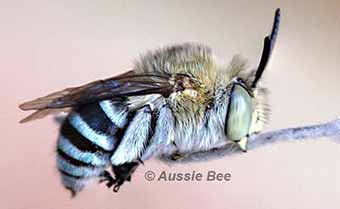Post your own sitings here!
Edited by ANTdrew, March 14 2020 - 7:01 AM.

Edited by ANTdrew, March 14 2020 - 7:01 AM.
I've seen so many. They are everywhere. Two species so far, one emerged earlier than the other but is rarer. I can walk outside and see 3-4 zipping around. I threw a plastic bag on a bush and it came away with a bombus queen inside.
I've seen so many. They are everywhere. Two species so far, one emerged earlier than the other but is rarer. I can walk outside and see 3-4 zipping around. I threw a plastic bag on a bush and it came away with a bombus queen inside.
Were you trying to catch a bombus queen or ...?
P.S. While I don't know the exact species when I see them, I enjoy seeing the extra fat bumblee queens come out in spring. Some little kids found a dead black one the other day... some of them would creep up to it, poke at it, then run screaming away (and no, that wasn't the girls).
Edited by OhNoNotAgain, March 14 2020 - 9:39 AM.
Past & Present
Veromessor pergandei, andrei, stoddardi; Novomessor cockerelli
Camponotus fragilis, Camponotus sansabeanus (inactive), vicinus, laevigatus/quercicola, CA02
Pogonomyrmex subnitidus, P. californicus (inactive)
Liometopum occidentale (inactive); Prenolepis imparis; Myrmecocystus mexicanus (inactive); Tetramorium sp. (inactive); Lasius sp.
Termites: Zootermopsis angusticollis, and a box of drywood termites that can't be seen
Isopods: (most no longer keeping) A. gestroi, granulatum, kluugi, maculatum, vulgare; C. murina; P. hoffmannseggi, P. haasi, P. ornatus; V. parvus, P. pruinosus, T. tomentosa
Spoods: (no longer keeping) Phidippus sp., other
I haven't seen any bees yet. We just got like 3 inches of snow ![]() RIP.
RIP.
They say it's supposed to melt very soon though, so that's good.
#Ants4Life
Yeah, that's nice. Will do, sounds good!
#Ants4Life
I was just taking some tries at catching flies. Bee flew in instead.
Awwww man some of them may not be bumblebees at all. ![]()
Some that I've seen over the years may be carpenter bees. ![]()
Past & Present
Veromessor pergandei, andrei, stoddardi; Novomessor cockerelli
Camponotus fragilis, Camponotus sansabeanus (inactive), vicinus, laevigatus/quercicola, CA02
Pogonomyrmex subnitidus, P. californicus (inactive)
Liometopum occidentale (inactive); Prenolepis imparis; Myrmecocystus mexicanus (inactive); Tetramorium sp. (inactive); Lasius sp.
Termites: Zootermopsis angusticollis, and a box of drywood termites that can't be seen
Isopods: (most no longer keeping) A. gestroi, granulatum, kluugi, maculatum, vulgare; C. murina; P. hoffmannseggi, P. haasi, P. ornatus; V. parvus, P. pruinosus, T. tomentosa
Spoods: (no longer keeping) Phidippus sp., other
I'd love to see some bumblebees, but I don't think I will in Riverside, haha.
OH wow you guys are lucky, I've been looking as I do every year and I have not seen any....yet!
I'll let you know when I do though. I have a few boxes ready for when I do catch some though.
Xylocopa carpenter bees are easy to confuse with Bombus queens. They are overall larger and shinier and much faster, more agile fliers.Awwww man some of them may not be bumblebees at all.
Some that I've seen over the years may be carpenter bees.
I’m looking forward to seeing bumblebees here but we’re still in the 20’s at night. BTW, did you happen to see this a few weeks ago? It was picked up by both the New York Times and the Washington Post. The Science article cited is behind a paywall but the abstract is available. Both newspaper articles have a link to it. Another species under stress and in decline ![]()
https://www.nytimes....sultPosition=10
https://www.washingt...climate-change/
it happens. But did you know that the honey bee was (and still is) an invasive species and killed most of what originally polinated North America? If the bees died, only a couple of flowers would die. The honey bees going extinct and killing the whole planet is a myth. Some original bee species would take over and it would be fine (the bumblebee for example).
There is a important time for everything, important place for everyone, an important person for everybody, and an important ant for each and every ant keeper and myrmecologist alike
yes
There is a important time for everything, important place for everyone, an important person for everybody, and an important ant for each and every ant keeper and myrmecologist alike
Sh*t. More bad news.
Sorry man, that wasn’t my intent.
No bumblebees here in Australia, which child-me was very upset to learn.
We do have blue banded bees though, which is some consolation.

0 members, 0 guests, 0 anonymous users